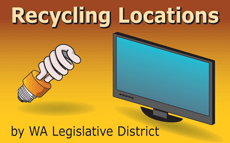Industry-funded program increases recycling and frees up resources
"The city has seen a number of benefits from transitioning over to Recycle BC-managed collection. The financial burden for managing collection was relieved... the department was able to redirect staff and resources from recycling into other programs and expand services in litter, abandoned waste and street cleaning collection. Municipal officials no longer have to spend so much time worrying about the effects of global shifts on commodity values.
Switching has also improved diversion... They have achieved a 92% recycling rate of what they collect, and our residents have enjoyed more services..."
From January 14, 2019, Resource Recycling:
Recycle BC, a nonprofit industry association, operates British Columbia’s packaging and paper product extended producer responsibility (EPR) program. Begun in 2014, Recycle BC has about 1,100 member companies and is "fully responsible for the delivery and financing of the recycling program" – from outreach and education to collection, processing and marketing of collected materials.
Funded by industry-paid fees, "in 2017, this pot of money totaled 86 million Canadian dollars ($65 million). Companies generally recoup this money through a cost internalization model in which the recycling cost is included in the price the consumer pays for the product. Typically... it’s less than 1 Canadian cent per product."
The City of Vancouver "divested of its recycling services" and transitioned collection service to Recycle BC, which contracted collection service with a local hauling company.
"The city has seen a number of benefits from transitioning over to Recycle BC-managed collection. The financial burden for managing collection was relieved... the department was able to redirect staff and resources from recycling into other programs and expand services in litter, abandoned waste and street cleaning collection. Municipal officials no longer have to spend so much time worrying about the effects of global shifts on commodity values.
Switching has also improved diversion... They have achieved a 92% recycling rate of what they collect, and our residents have enjoyed more services."
